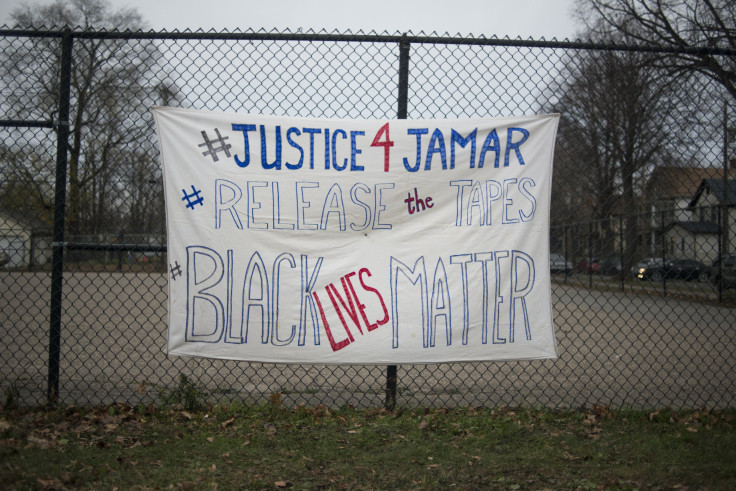Who Is Jamar Clark? Minneapolis Protests Planned, City Reacts After No Charges In Death Of Unarmed Black Man

There are at least two rallies planned Wednesday afternoon in Minneapolis to protest the decision not to charge two police officers who fatally shot Jamar Clark, an unarmed black 24-year-old, during a confrontation in November. The city is preparing for demonstrations after five people were shot in a racially motivated attack and more than 50 were arrested during clashes with law enforcement after Clark's killing last fall.
Hennepin County Attorney Mike Freeman announced his office's decision earlier in the day, telling reporters Clark was not handcuffed when he was shot, contrary to initial reports. At one point during the episode, Freeman said, Clark told the officers, "I'm ready to die," according to NBC News.
Evidence did not justify charging MN officers in #JamarClark's death, attorney says https://t.co/fh4ThMXqoA pic.twitter.com/ebwPIrhBu1
— CBS News (@CBSNews) March 30, 2016
Officers Mark Ringgenberg and Dustin Schwarze responded to a call early on the morning of Nov. 15, 2015, arriving to find Clark interfering as paramedics tried to treat his girlfriend, with whom he'd apparently just fought, the Minneapolis Star-Tribune reported. The accounts diverge there. Clark was handcuffed, "slammed to the ground" and shot in the head "execution-style," witnesses said.
"The young man was just laying there; he was not resisting arrest," local resident Teto Wilson said in a statement reported by the NAACP afterward. "Two officers were surrounding the victim on the ground, an officer maneuvered his body around to shield Jamar’s body, and I heard the shot go off.”
But Freeman's news release Wednesday gave this account:
When Ringgenberg and Schwarze arrived, they ordered Clark to remove his hands from his pockets to make sure he did not have a gun. When he refused, the officers moved in and attempted to handcuff Clark. When he resisted, Ringgenberg took Clark to the ground and landed on top of him. However, Ringgenberg felt his gun move to the small of his back. When he reached for it, he felt Clark's hand on the gun, an account that was supported by DNA evidence.
Schwarze threatened to shoot Clark if he did not release the gun. Clark refused to do so and Schwarze shot Clark in the head. Officer Schwarze's actions were reasonable because if Clark successfully pulled the gun from the holster, Ringgenberg and Schwarze would have been shot and other bystanders might have been hit as well, Freeman said.
Clark was taken to the hospital and removed from life support the next day. Both officers went on administrative leave and were put on desk jobs. Each had a history of excessive force allegations: Ringgenberg had previously been sued in California for roughly handling a suspect, and Schwarze was accused of using a Taser at a traffic stop.
“They killed my cousin! They shot him in the head. Are you serious? This is so sad," Jeremy Baker told the Star-Tribune Wednesday.
The protests after Clark's death drew hundreds of people, many of them gathering outside police headquarters. NBC News reported that officers used pepper spray to control rioters who threw bricks and rocks at them, and a group of people Black Lives Matter activists described as "white supremacists" at one point fired bullets into a crowd.
City officials appeared to be preparing for more demonstrations Wednesday in light of Freeman's announcement.
“My heart breaks for the loss of Jamar Clark’s life, and for the pain felt by everyone involved in this incident. There is a tear that has ripped through our community, one we cannot sew back up," Mayor Betsy Hodges said in a statement. "We value our residents exercising their constitutional rights while also being safe and being treated with dignity and respect. Our highest priority will be keeping everyone – demonstrators, the public and police officers – safe as the city reacts to this decision."
From a moment ago. Riot police have since withdrawn. #JamarClark pic.twitter.com/ehCCwns0Xw
— Jack Highberger (@JackHighberger) March 30, 2016
Protesters gathering in on blocked off street where Jamar Clark was shot by police. pic.twitter.com/krKiq2ymrz
— Jennifer Brooks (@stribrooks) March 30, 2016
© Copyright IBTimes 2024. All rights reserved.






















